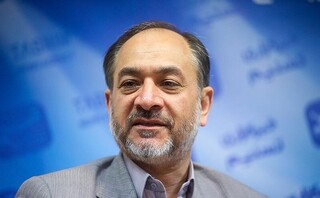Alwaght- Tehran has seen an increase in its interest in BRICS group since China invited Iran to participate in the group's recent meeting. The Russian Foreign Ministry announced in a statement that the Islamic Republic has officially made a membership bid. The bid comes less than a year after Iran was officially accepted a full member of the Shanghai Cooperation Organization (SCO). The unique geographical position of Iran and its capabilities and capacities in energy, trade, and economic partnership make Iran attractive to BRICS, a bloc of emerging powers Brazil, Russia, India, China, and South Africa.
For details on the accession bid, Alwaght talked to Sayyed Reza Sadralhusseini, an Iranian expert of West Asia affairs.
Alwaght: Iran recently applied for BRICS membership and worked for Shanghai Cooperation Organization membership for years. Why do you think Iran is seeking to be member of regional blocs in the current conditions and what advantages do they have to it?
Sadralhusseini: According to the roadmap that President Sayed Ibrahim Raisi's administration has designed to expand foreign relations with an emphasis on economy, one of the most important issues that the government pursues in economy and foreign policy is the presence in organizations, treaties, and economic blocs in the world. The BRICS as one of the most important economic groups in the world, which can shape the future of the global economy to some extent, has been proposed by strategists as one of the membership targets of the Islamic Republic. China also recently invited Iran to the summit of this economic organization and Iran participated at the highest level. Iran's membership in BRICS is still not certain, but as a developing country from West Asia, being invited to this economic summit is considered a great privilege for Iran economically.
Given the Iranian moves for membership in the economic organizations, it can be suggested that President Raeisi's government has a special focus and plans on economic growth and reaching the international economic standards. This is not just in energy sector but also in industrial production. The current Iranian administration is moving to materialize the slogan of the Supreme Leader who called the new Persian year the year of "knowledge-based production and job-creation."
On the other hand, Iran's membership in the Shanghai Cooperation Organization, which is a significant institution in West Asia and East Asia, can increase the pace of Iran's economic development and in the short term can have a direct influence on its exports.
Alwaght: How significant is BRICS membership to Iran's regional and international position?
Sadralhusseini: With the shift of the center of world's economic center of gravity from the West to the East, BRICS can shine as a economic and industrial hub and actually create a balance against the G7. Iran's presence in the BRICS can be greatly influential for meeting Iranian home needs and for increasing its exports. This issue marks a jumping point for Tehran in enhancing the quality of its products and its foreign trade.
Alwaght: How influential can Iran be after joining BRICS and Shanghai Cooperation Organization?
Sadralhusseini: Iran's policy is to provide part of the energy needs of the BRICS member countries and the Shanghai Cooperation Organization. Iran's main goal is to seize the opportunity to improve the quality of its industrial products, while providing part of the needs of these international organizations. Iran also seeks to use its geopolitical position and provide ports, routes, and railways to these organizations and not just supply energy to them.
Alwaght: Why has President Raeisi's administration chosen "pivot to the East" as a top foreign policy path? And how would BRICS membership influence this policy? With the US seeking to cut Iranian ties to China and Russia, in case of revival of the nuclear deal, will the US continue its sanctions on Tehran to disrupt these relations?
Sadralhusseini: The more Iran succeeds in looking to the East and be able to gain membership of Eastern economic institutions and play an effective role in them, the more US concern will increase, and on the other hand, impact of Western sanctions on Iran will decrease. An important issue in this regard is the ineffectiveness of the sanctions that are used today as a pressure tactic by the West against independent governments and Iran can present a successful model to show the world that even in case of maximum pressure campaign, active resistance can tangibly slacken the sanction effects.
Alwaght: What's driving Chinese and Russian support for Iran's BRICS membership? Have the nuclear talks motivated them to do so or is their policy regional alliance and teaming in the face of the West after Ukraine war? What factors are influencing Beijing and Moscow views?
Sadralhusseini: Chinese and Russian partnership with Iran is not new and so we cannot say their support for the bid is related to Ukraine crisis, though it can influence their decisions. Iran has been under toughest Western sanctions over the past decade and did not collapse and the West could not bring Iran to its knees. Therefore, the Eastern organizations, China, and Russia have come up to the conclusion that the Iranian economy is firm, endogenous and self-sufficient and even can give them experiences. This can be bilateral and serve the interests of the both sides.
Alwaght: How do you see the outlook for Iran's pivot to east and membership in the regional blocs?
Sadralhusseini: This policy is successful and given the developments taking place on international stage and the shift of economic centrality from the West to the East, Iran's role in the East's economy and creation of effective Eastern economic colonies can substantially propel growth of Asian states. Equipped with a precise vision, Iran is closely watching the changes and gradually makes its place for acting in the Eastern economy. Iran owes this policy to the strategic vision of the Supreme Leader and the efforts to be done later for the domestic economy.



























